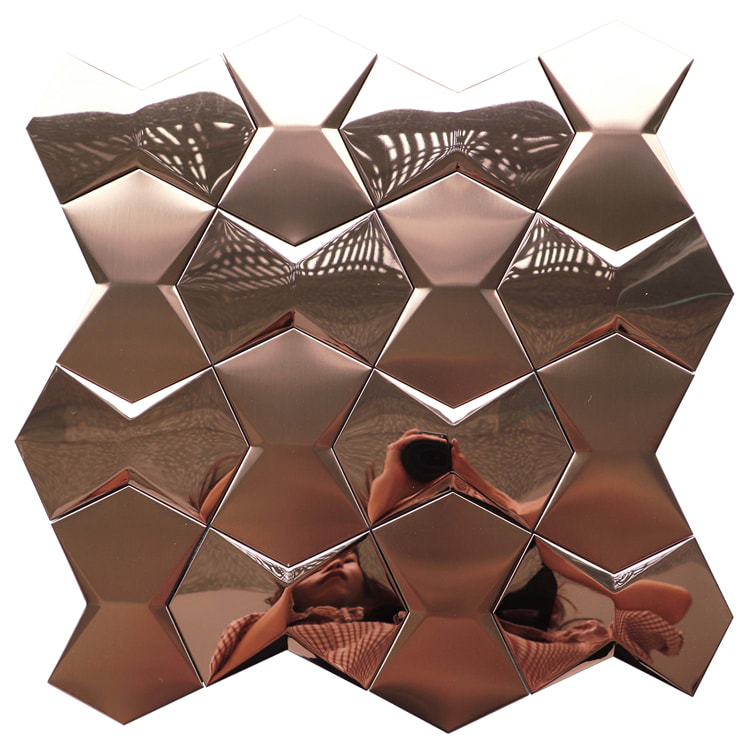Metal mosaics offer a unique and stylish option for enhancing the aesthetics of your space, whether it's a kitchen backsplash, bathroom wall, or a decorative feature in a commercial setting. Selecting the right metal mosaics involves considering various factors to ensure they complement your design preferences and functional needs. Here's a comprehensive guide to help you make an informed decision.
1. Define Your Style and Theme:
Before delving into specific metal mosaic options, define the overall style and theme of the space. Consider the existing decor, color palette, and the ambiance you want to create. Metal mosaics come in various finishes and patterns, from sleek and modern to more rustic or industrial, so align your selection with the desired aesthetic.
2. Choose the Right Metal Type:
Different metals offer distinct appearances and characteristics. Common metal options for mosaics include stainless steel, aluminum mosics, copper, and bronze. Each metal has its unique color, durability, and maintenance requirements. Stainless steel is known for its modern and sleek appearance, while copper adds warmth and a distinctive patina over time. Consider the visual and functional aspects of each metal type to find the best fit for your space.
3. Consider the Finish:
Metal mosaics come in various finishes, contributing to their overall look and feel. Common finishes include polished, brushed, matte, or textured surfaces. The finish not only affects the aesthetics but also influences the mosaic's resistance to scratches, fingerprints, and overall durability. Choose a finish that complements the design and meets the practical needs of the area.

4. Evaluate Tile Size and Pattern:
Metal mosaics come in an array of tile sizes and patterns. Consider the scale of the area you're covering and the visual impact you want to achieve. Larger tiles can create a bold and contemporary look, while smaller tiles may offer more intricate patterns and detailing. Pay attention to the pattern repeat if you're using a mosaic with specific designs, ensuring they align well within the space.
5. Assess Maintenance Requirements:
Different metal finishes and types have varying maintenance needs. Stainless steel, for example, is generally easy to clean and maintain, while copper may require specific cleaning agents to preserve its original appearance. Consider the level of maintenance you're comfortable with and choose metal mosaics that align with your upkeep preferences.
6. Think About Application:
Where you plan to install the metal mosaics influences your choice. Consider factors like moisture levels, temperature variations, and exposure to potential staining agents. Some metals may be better suited for specific applications. For instance, stainless steel is often a preferred choice in kitchens due to its resistance to corrosion and staining.
7. Budget Considerations:
Establish a budget for your project, considering not only the cost of the metal mosaics but also installation expenses. Some metals may be more budget-friendly than others, and the complexity of the mosaic pattern can impact installation costs. Strike a balance between your design aspirations and financial constraints.
8. Seek Samples and Visualize:
Before making a final decision, obtain samples of the metal mosaics you're considering. Assess how they look in your space, especially under different lighting conditions. This hands-on approach allows you to visualize the final result and ensures that the metal mosaics align with your expectations.
Conclusion:
Selecting metal mosaics involves a thoughtful consideration of style, metal type, finish, tile size, maintenance requirements, application, budget, and a visual assessment through samples. By carefully weighing these factors, you can confidently choose metal mosaics that not only enhance the visual appeal of your space but also meet the practical demands of the environment.




Comments
Please Join Us to post.
0